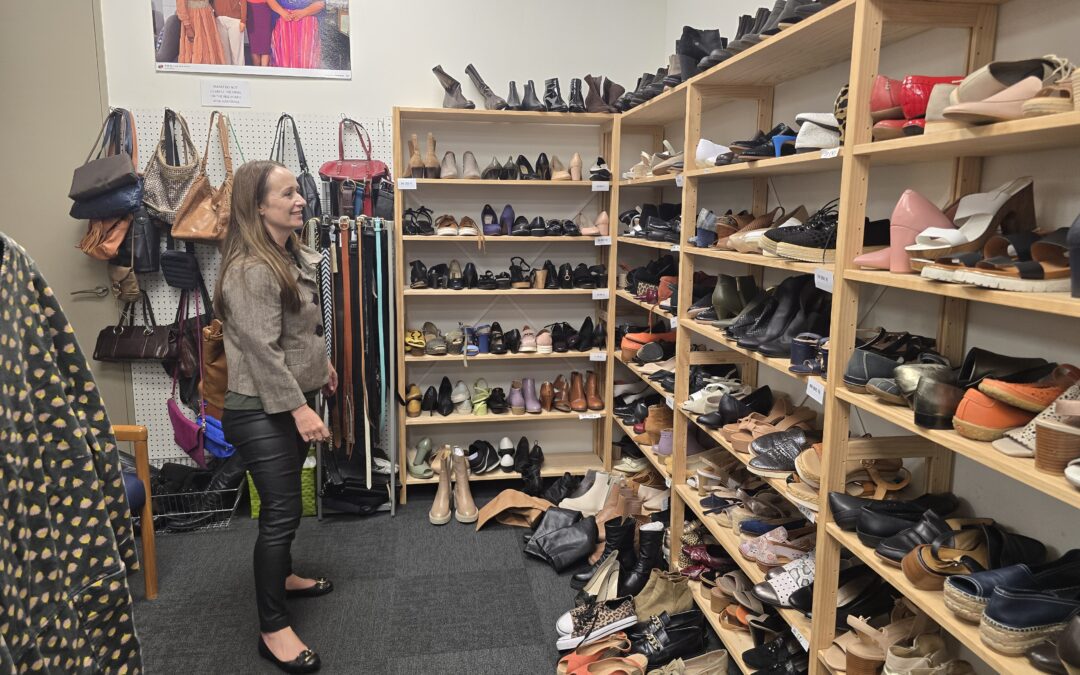Building a financially secure future isn’t just about paying off debt or growing wealth – it’s about protecting what you’ve worked hard for. With online scams on the rise, vigilance has never been more important.
The Financial Markets Authority (FMA) has issued a warning about a new wave of convincing scams circulating on social media. In this article, we’ll break down what’s happening, how these scams work, and the red flags you can look out for to protect yourself.
What’s been happening recently
Scammers have stepped up their tactics by creating fake social media pages that impersonate well-known New Zealanders. These aren’t limited to celebrities and politicians – they now include business leaders and financial advisers too.
Our enable.me Performance Coach, Nadine Higgins, is one of the many advisers who have been impersonated, with scammers using her old photos to create an account that looks almost identical to her real one.
Some fraudulent pages even use AI-generated “deepfake” videos to make their content appear more convincing. This is a clear reminder of just how sophisticated scams have become – and why it’s critical to stay cautious when you come across investment opportunities online.
How the scam works
- A convincing ad appears on social media, often featuring a familiar face.
- The ad promotes “free investment advice” or invites you to join a WhatsApp group.
- Victims are then encouraged to invest through fake online platforms – ultimately losing money.
Why it’s concerning
Deepfake technology makes these scams look highly realistic, even to savvy investors. The FMA warns that fraudsters use the same tactics in other countries, swapping in the names and faces of local public figures to build false credibility.
Spotting an Online Scam
Online scams are getting harder to detect, but there are some clear red flags you can watch for:
1. Be wary of “too good to be true” promises
Scammers often dangle the idea of quick, guaranteed returns. Real investments carry risk, and no adviser can promise fast, easy money.
2. Know how genuine advice is delivered
Financial advisers, educators, and commentators may share general tips online, but personalised advice won’t be offered through social media or WhatsApp groups. Genuine personalised advice happens in a controlled setting – like a meeting or secure video call.
3. Trust your instincts and double-check
If something feels off, pause before acting. Visit the adviser’s official website, call, or email directly to confirm whether what you’ve seen is legitimate.
4. Take action if you spot a scam
If you come across an investment ad on social media featuring a familiar face:
- Don’t click on any links
- Don’t share personal details or download apps
- Don’t transfer money
- Report the ad to the social media platform
- Check the FMA’s warnings page or email them at questions@fma.govt.nz to report it
If I come across an ad from enable.me, how can I be certain it’s legitimate?
If you see an ad that appears to be from us but something feels off, don’t hesitate to give us a call on 0800 897 898 or email us directly to confirm at info@enable.me.
We also work closely with AdviceFirst, AMP, and moneyfit.me – together, we provide expertise across insurance, money habits, and KiwiSaver so you can be supported holistically with your finances.
Final thoughts
When it comes to your money, caution pays off. Before clicking on an ad that brings unrealistic promise, take a moment to pause, verify the source, and seek financial advice from a trusted, professional channel before making any decisions.
At enable.me, our mission is to help you make financial progress with confidence. That includes supporting you to spot red flags, avoid scams, and make smarter choices with your money.


